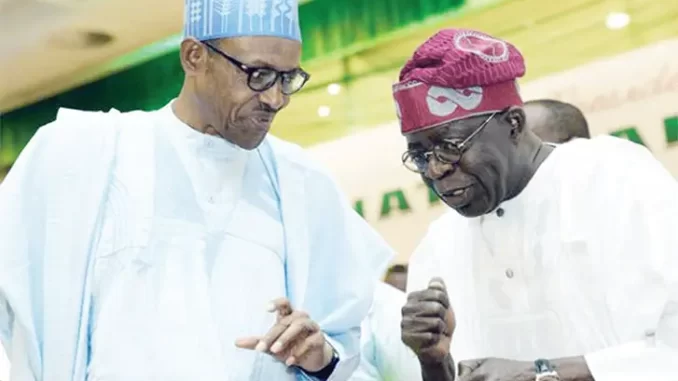
Special Adviser to President Bola Tinubu on Information and Strategy, Bayo Onanuga, said this in a State House Rejoinder to New York Times report on Nigeria’s current economic woes.
The Presidency has revealed that the administration of former President Muhammadu Buhari subsidized exchange rate with an estimated $1.5 billion monthly to defend naira.
Special Adviser to President Bola Tinubu on Information and Strategy, Bayo Onanuga, said this in a State House Rejoinder to New York Times report on Nigeria’s current economic woes.
SaharaReporters reported earlier on Monday that the Presidency in a detailed rejoinder, emphasized that the economic challenges facing Nigeria were inherited by President Tinubu, who came into office late May 2023, and not a result of the current administration’s policies.
Describing the report titled “Nigeria Confronts Its Worst Economic Crisis in a Generation,” as misleading and overly negative, Onanuga cited cases to absorb his principal’s administration from the current economic situation.
He said, “For decades, Nigeria had maintained a fuel subsidy regime that gulped $84.39 billion between 2005 and 2022 from the public treasury in a country with huge infrastructural deficits and in high need of better social services for its citizens. The state oil firm, NNPC, the sole importer, had amassed trillions of naira in debts for absorbing the unsustainable subsidy payments in its books.
“By the time President Tinubu took over the leadership of the country, there was no provision made for fuel subsidy payments in the national budget beyond June 2023. The budget itself had a striking feature: it planned to spend 97 percent of revenue servicing debt, with little left for recurrent or capital expenditure. The previous government had resorted to massive borrowing to cover such costs.
“Like oil, the exchange rate was also being subsidized by the government, with an estimated $1.5 billion spent monthly by the CBN to ‘defend’ the currency against the unquenchable demand for the dollar by the country’s import-dependent economy. By keeping the rate low, arbitrage grew as a gulf existed between the official rate and the rate being used by over 5000 Bureau DE Change (BDCs) that were previously licensed by the Central Bank.
“What was more, the country was failing to fulfil its remittance obligations to airlines and other foreign businesses, such that FDIs and investment in the oil sector dried up, and notably Emirate Airlines cut off the Nigerian route.”
Leave a Reply